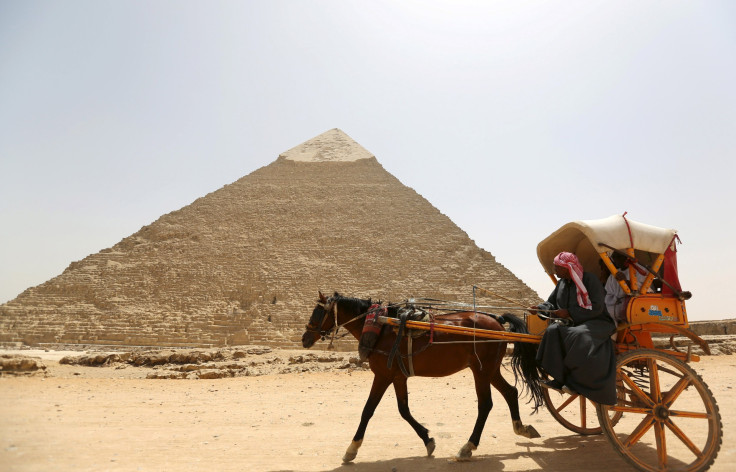US Military Aid To Egypt Likely To Continue Amid Rights Concerns

WASHINGTON (Reuters) -- The U.S. Congress looks set to approve another $1.3 billion in military aid to Egypt despite concerns expressed by some lawmakers over its crackdown on dissent while fighting religious militants.
Senate and House of Representatives staffers are engaged in feverish negotiations on what should be in a trillion-plus-dollar spending bill that they must complete by Dec. 11 to avoid a government shutdown.
Egypt's aid package is in focus because of growing unease among both Republicans and Democrats that the government of President Abdel Fattah al-Sisi is exploiting security concerns to crack down on dissent and arresting journalists.
"I'm very concerned about it, and have been for a long time," Republican Senator John McCain, chairman of the influential Senate Armed Services Committee, told Reuters.
"I worry when they arrest people for no good reason, when they have 40,000 or so people in prison and there's clearly been an abridgement of various freedoms, such as the press and others," he said.
But McCain, like other influential defense hawks, views Egypt's military as a reliable partner in a chaotic region.
"Their military is good, a lot of it has to do with our support," he said.
Congressional aides told Reuters that Egypt's 2016 package is expected to end up at about the same level as last year's, with $1.3 billion in military aid and $150 million in economic assistance.
The aid for last year and the year before was approved but not disbursed from October 2013 until March 2015 after former president Mohamed Mursi was overthrown by the military following mass protests against his rule.
Egypt has had no parliament since June 2012 when a court dissolved the democratically elected main chamber, then dominated by now-outlawed Islamist Muslim Brotherhood. The arrest this week of a prominent journalist and human rights advocate, Hossam Bahgat, prompted protests by rights groups and the United Nations before his release on Tuesday.
Many in Washington are more comfortable with Sisi's government, even though the former general took power by ousting Mursi, an elected president and member of the Brotherhood.
ISRAEL BACKS AID FOR CAIRO
Israel, an influential U.S. ally, especially in Congress, has backed the assistance for Cairo since its peace deal with Egypt in 1979. Egypt is the second-largest recipient of U.S. military assistance after Israel and the two countries together account for 75 percent of all such U.S. aid.
Sympathy for Sisi's government has intensified since the late October crash of a Russian jet after takeoff from an Egyptian resort city, for which a group affiliated with Islamic State has claimed responsibility.
Some lawmakers want to attach conditions to the aid that would require President Barack Obama's administration to certify Sisi's government was meeting certain democratic standards, such as supporting press freedom.
"We think the Egyptian government's been a great partner for us, and President Sisi is doing a number of things that we strongly support. But we have a real concern about the crackdown on legitimate political opposition, especially on journalists," said Democratic U.S. Senator Tim Kaine, a member of the Senate Foreign Relations Committee.
Emily Horne, a spokeswoman for the White House's National Security Council, said Obama's decision to resume military aid to Egypt on March 31 was designed to "modernize" the relationship by focusing security assistance on counter terrorism, border security, Sinai security and maritime security.
However, she said the United States is "deeply concerned" about human rights and political reform.
"We therefore continue to engage with the Egyptian government frankly on its political trajectory and to raise human rights and political reform issues," she said.
(Editing by Stuart Grudgings and W Simon)
© Copyright Thomson Reuters 2024. All rights reserved.







